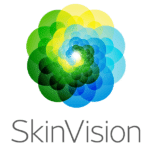
19 Sep Smart Phone App Uses Machine Learning To Triage Skin Cancers
MedicalResearch.com Interview with:
Andreea Udrea, PhD
Associate Professor
University Politehnica of Bucharest
MedicalResearch.com: What is the background for this study?
The skin cancer incidence rate is increasing worldwide. Early diagnosis and prevention can reduce
morbidity and are also linked to decreased healthcare costs. During the last years, efforts have been
made in developing smartphone applications for skin lesion risk assessment to be used by laypersons.
In parallel, as machine learning (ML) is on the rise, and medical image databases are increasing in size, a
series of algorithms have been developed and compared in clinical studies to dermatologists for skin
cancer diagnosis. The accuracy of the algorithms and experts were comparable.
One drawback of these clinical studies is that they use images acquired by professionals in standardized
conditions. So, there is little knowledge of what the accuracy will be when including an ML algorithm in
an app and testing it in a non-clinical setup where the image quality may be lower, and the variability in
image taking scenarios is higher as images are acquired by non-professionals using the smartphone
camera. This study is one of the first that evaluates the accuracy of an app (SkinVision) when being used
for risk assessment of skin lesions in the general population.
MedicalResearch.com: What are the main findings? Does this technology work for both melanocytic lesions as well as basal cell and squamous cell carcinomas? What does it say about actinic keratosis?
The ML technology used by the SkinVision app can be applied to any type of skin lesion, melanocytic or
not, as a user without a medical background cannot distinguish between the two and will probably want
to assess any lesion that concerns them. This guarantees that the most common forms of skin cancer:
malignant melanoma, basal cell carcinoma, squamous cell carcinoma, and also precancerous lesions like
actinic keratosis can be detected as having a high risk.
The outcome of the study is that, when tested on data acquired from the general population (over 6,000
cases), the app obtained a 95.1% sensitivity at a specificity level of 78.3% in detecting (pre)malignant
skin conditions: 93% for malignant melanoma and 97% for basal cell and squamous cell carcinomas and
precursors like actinic keratosis and Bowen’s disease.
MedicalResearch.com: What should readers take away from your report?
The ML-powered app can be used by laypersons for skin lesions risk assessment as it shows higher
accuracy compared to that of a general practitioner but is not a tool to diagnose skin cancer, rather a
triage tool, and it doesn’t replace the intervention of a medical doctor. The aim is to guide laypersons in
need of treatment into the health system while helping reduce the number of unnecessary visits to
general practitioners for low-risk lesions.
MedicalResearch.com: What recommendations do you have for future research as a result of this study?
When developing and testing mHealth apps for skin cancer risk assessment that are to be used by a
non-professional, it is important to understand the user behavior and, aside from testing them in clinical
studies, also perform tests in the general population, as the actual usage scenario can be quite different
from the medical setup.
Future studies are needed to quantify the cost impact on health systems.
Citation:
JOIN OUR EMAIL LIST
[mailpoet_form id="5"]We respect your privacy and will never share your details.
Last Modified: [last-modified]
The information on MedicalResearch.com is provided for educational purposes only, and is in no way intended to diagnose, cure, or treat any medical or other condition. Always seek the advice of your physician or other qualified health and ask your doctor any questions you may have regarding a medical condition. In addition to all other limitations and disclaimers in this agreement, service provider and its third party providers disclaim any liability or loss in connection with the content provided on this website.
Last Updated on September 19, 2019 by Marie Benz MD FAAD
